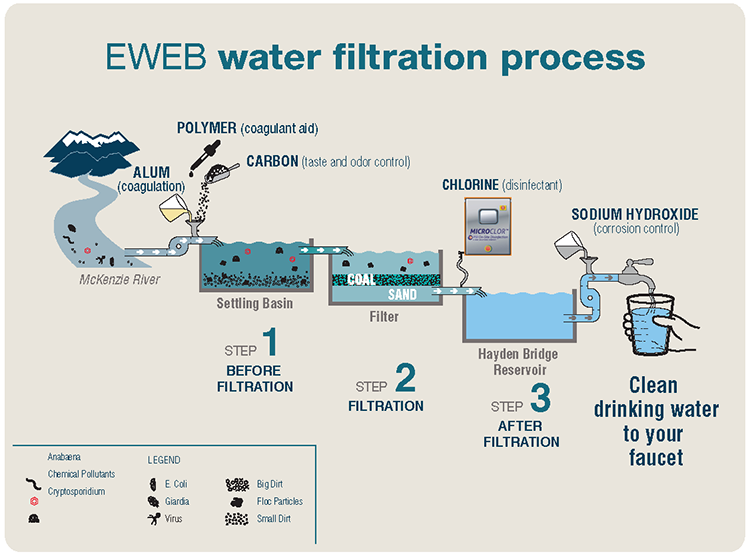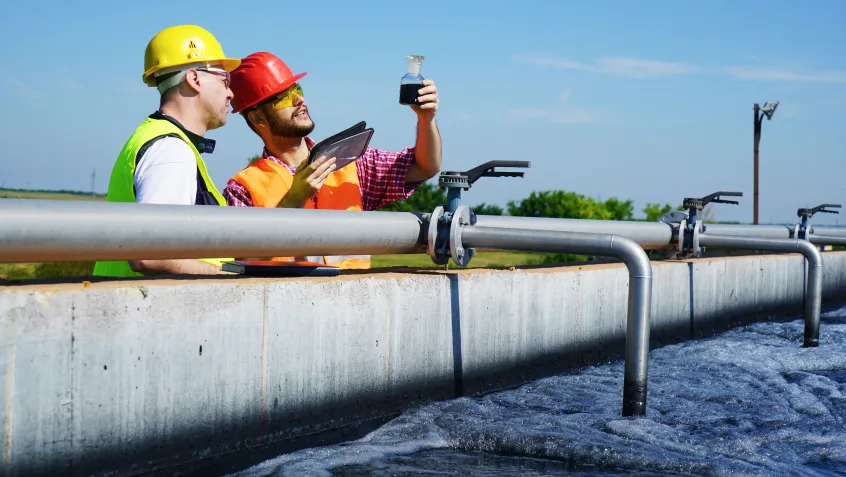What Are the Kinds Of Water Technology Startups Transforming the Sector?
The water Technology market is experiencing substantial improvement with a selection of innovative start-ups. These companies are presenting smart water monitoring services and advanced filtering systems, to name a few technologies. They attend to vital issues such as water efficiency, high quality, and deficiency. As these technologies progress, they lead the way for sustainable techniques. However, the landscape is complicated, questioning concerning the most impactful technologies and their long-term implications.
Smart Water Monitoring Solutions
Smart water administration services stand for a transformative technique to maximizing water use and circulation. These remedies utilize Technology to enhance efficiency, decrease waste, and improve resource allocation. Startups in this market utilize different tools, including IoT devices, real-time monitoring systems, and data analytics, to enable municipalities and sectors to track water intake a lot more precisely. By utilizing advanced algorithms, these technologies can forecast need patterns and determine potential leaks, helping with proactive upkeep.

Advanced Filtration and Filtration Technologies
As water quality worries expand, progressed filtration and purification innovations have actually arised as vital services for making certain risk-free and tidy water products. These technologies utilize advanced products and methods to efficiently eliminate impurities, including germs, hefty steels, and microplastics. Start-ups in this field are establishing systems that use nanotechnology, membrane layer filtering, and ultraviolet light therapy, improving effectiveness and efficiency in water filtration procedures.
These technologies can be tailored for various applications, from municipal water therapy centers to private household systems, dealing with the diverse demands of customers and markets. Several firms concentrate on energy-efficient services, thereby lowering the ecological influence of water therapy. The rise of smart filtering systems, which integrate sensing units and information analytics, permits real-time tracking and management of water top quality. Generally, these advanced technologies play a substantial function in safeguarding public wellness and preserving beneficial water sources.
Sustainable Desalination Techniques
Sustainable desalination approaches are acquiring focus as practical solutions to water shortage. By integrating sustainable energy sources and employing cutting-edge filtering technologies, these techniques aim to minimize environmental effects while improving performance. Checking out these advancements exposes substantial capacity for changing seawater into a lasting freshwater resource.
Renewable Resource Assimilation
While the global need for freshwater remains to rise, ingenious start-ups are checking out renewable resource combination to boost sustainable desalination techniques. These business are harnessing solar, wind, and other eco-friendly power sources to power desalination processes, substantially decreasing reliance on fossil gas. By making use of sustainable power, start-ups intend to make desalination much more eco pleasant and economically practical. Furthermore, some are creating hybrid systems that incorporate traditional desalination innovations with sustainable power options, maximizing performance and decreasing carbon impacts. These improvements not just address water scarcity yet also add to a more sustainable power landscape, showcasing the prospective synergy in between water Technology and renewable resource. As these start-ups grow, they play a crucial duty fit the future of lasting water monitoring.
Cutting-edge Filtering Technologies
Ingenious filtering innovations are emerging as a pivotal component in the pursuit for lasting desalination techniques. These developments concentrate on boosting performance and minimizing energy consumption in the desalination procedure. Start-ups are developing unique membrane layers that significantly improve salt denial prices while reducing fouling, which traditionally interferes with efficiency. Techniques such as onward osmosis and bio-inspired filtering systems are acquiring grip, using eco-friendly choices to conventional approaches. Additionally, incorporating nanotechnology into purification materials enhances their efficiency, permitting reduced operational prices. The drive towards sustainability is additionally prompting study into crossbreed systems that combine numerous filtration techniques, thus maximizing water quality and source recovery. As these technologies develop, they assure to transform water therapy and ease of access worldwide.
Water Top Quality Tracking and Analytics
Water top quality monitoring and analytics are progressively driven by cutting-edge sensing unit innovations that give crucial understandings into water security. These advancements allow real-time information evaluation, permitting instant feedbacks to potential contamination. Furthermore, the application of predictive analytics boosts the capacity to forecast water high quality patterns, inevitably boosting public health and resource administration.

Innovative Sensor Technologies
As the demand for clean and risk-free water intensifies, sensor technologies for keeping track of water high quality have actually become necessary devices in resolving this obstacle. These cutting-edge sensing units are created to find a large range of impurities, consisting of hefty metals, germs, and chemicals, offering real-time data on water purity. The integration of advanced products and miniaturized parts has actually resulted in extremely sensitive devices that can run in varied atmospheres, from urban systems to remote water sources. Additionally, several start-ups concentrate on establishing IoT-enabled sensors that promote remote surveillance, permitting proactive management of water sources. By boosting the accuracy and ease of access of water quality information, these innovations play a crucial role in ensuring public wellness and environmental sustainability.
Real-Time Information Analysis
Developments in sensing unit modern technologies have paved the method for innovative real-time data evaluation systems in water high quality tracking (Water Technology Startups). These systems enable continual evaluation of various water top quality specifications, such as pH, turbidity, and contaminant levels, supplying immediate understandings into water problems. Startups in this market leverage cloud computing and equipment discovering formulas to process substantial amounts of information successfully. This real-time analysis permits swift detection of abnormalities and potential dangers, ensuring timely feedbacks to water quality concerns. Additionally, easy to use control panels present data aesthetically, making it available to stakeholders, consisting of municipalities and environmental companies. Because of this, these innovations promote improved decision-making and aggressive management of water sources, promoting public health and ecological sustainability
Anticipating Analytics Applications
While real-time information analysis gives immediate understandings right into water quality, predictive analytics applications take a proactive approach by anticipating prospective issues before they develop. These applications use sophisticated formulas and historic information to recognize fads and patterns in water top quality metrics, permitting early intervention. Startups in this sector leverage machine knowing and huge data analytics to anticipate contamination events or equipment failures, enabling water management agencies to allocate resources better. Additionally, anticipating analytics can boost governing conformity by expecting high quality issues that may lead to offenses. By applying these modern technologies, companies can considerably improve their response times, lower functional expenses, and ultimately guarantee more secure water for neighborhoods. This forward-thinking method is vital for modern water monitoring methods.
Leak Discovery and Facilities Management
Effective leakage detection and framework administration are important for keeping the stability of water systems, specifically as aging framework ends up being more widespread. Startups in this field are leveraging sophisticated technologies such as acoustic sensing units, satellite imagery, and artificial why not check here knowledge to identify leakages rapidly and properly. By using real-time information, these options help utilities monitor pipeline problems and enhance maintenance routines.
Innovative startups are additionally developing anticipating analytics tools that examine historic data to anticipate possible failures, enabling proactive infrastructure management. Additionally, integration with geographic details systems (GIS) boosts the visualization of water distribution networks, assisting in better decision-making.
These modern technologies not only minimize water loss but also lower operational costs and enhance solution integrity. As the demand for efficient water administration expands, leakage detection and infrastructure administration start-ups are coming to be vital gamers in ensuring sustainable water systems for the future.
Rainwater Harvesting and Reuse Solutions
Rain harvesting and reuse systems have emerged as innovative options to resolve water scarcity and promote lasting source management. These systems capture, store, and use rain for numerous applications, greatly minimizing dependence on standard water resources. By collecting rainwater from rooftops or other surface areas, these technologies enable communities and companies to make use of an otherwise squandered resource.
Start-ups in this field emphasis on creating effective collection systems, filtering methods, and storage remedies that make best use of water top quality and use. Advanced checking modern technologies are likewise incorporated to guarantee peak system efficiency and maintenance. Additionally, assimilation with clever home systems enables real-time management and reliable water usage.
These efforts not only add to water conservation but additionally reduced energy prices for individuals. As recognition of environmental difficulties grows, rain harvesting and reuse systems attract attention as sensible, lasting remedies with the ability of transforming water monitoring methods throughout different regions.
Agricultural Water Performance Innovations
As worldwide need for food remains to climb, agricultural water performance advancements have ended navigate to this site up being necessary in guaranteeing lasting farming methods. Start-ups are leveraging Technology to develop remedies that optimize water use in agriculture. Advanced irrigation systems, such as drip and accuracy irrigation, enable farmers to deliver water directly to plant origins, reducing waste. In addition, soil wetness sensing units and climate analytics tools aid farmers keep track of problems in real-time, allowing them to irrigate only when essential.
The integration of man-made knowledge and equipment learning improves decision-making, enabling for extra efficient water management techniques. These advancements not just raise plant yields but also decrease water usage, which is important in water-scarce areas. By taking on these technologies, agricultural stakeholders can add to a more sustainable food system, dealing with both environmental issues and the expanding worldwide populace's needs. The future of agriculture hinges on these water efficiency developments, marking a vital shift in farming methods.
Often Asked Concerns
How Do Water Technology Startups Secure Funding for Their Innovations?
Water Technology start-ups safe and secure funding with numerous channels, including venture resources, federal government grants, crowdfunding systems, and collaborations with well-known companies. These methods enable them to innovate and scale their services to deal with special info pressing water challenges.
What Obstacles Do Start-ups Face in the Water Technology Industry?
Startups in the water Technology field face countless difficulties, including regulatory difficulties, high funding demands, competition from well-known business, technological intricacy, and the requirement for public understanding and acceptance of cutting-edge options in water monitoring.
How Can Consumers Benefit From Water Technology Innovations?
Consumers can take advantage of water Technology innovations with improved water high quality, improved access, cost financial savings, and enhanced conservation initiatives. These developments bring about much healthier neighborhoods, lasting practices, and greater durability against water deficiency and environmental challenges.
What Role Do Government Regulations Play in Water Technology Startups?
Federal government laws substantially affect water Technology start-ups by establishing compliance criteria, incentivizing innovation through aids and gives, and forming market access strategies. These guidelines can either cultivate growth or enforce difficulties depending on their intricacy and enforcement.
How Do Start-ups Gauge the Impact of Their Technologies on Water Preservation?
Start-ups gauge the effect of their technologies on water preservation with metrics such as water savings, performance renovations, customer fostering prices, and ecological advantages, frequently making use of data analytics and pilot tasks to verify their performance. (Water Technology Startups)
The surge of smart water administration services mirrors a growing recognition of the requirement for lasting water techniques, eventually contributing to the resilience of water systems worldwide. As water quality concerns grow, advanced filtering and filtration modern technologies have actually emerged as vital remedies for ensuring risk-free and clean water supplies. These developments not just address water shortage however likewise contribute to an extra sustainable energy landscape, showcasing the prospective synergy between water Technology and renewable energy. As the demand for tidy and secure water heightens, sensor technologies for checking water quality have actually emerged as essential devices in resolving this challenge. Customers can profit from water Technology developments through improved water top quality, boosted access, cost financial savings, and increased preservation efforts.